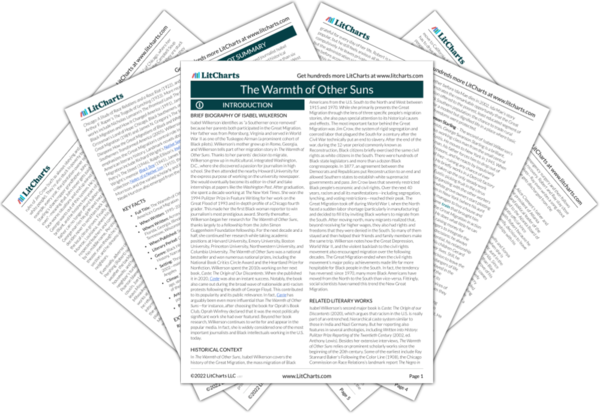AI ToolsNew
Tools to make learning and teaching easier
|
Previous
Part Two: A Burdensome Labor
|
The Warmth of Other Suns: Part Two: The Awakening Summary & Analysis |
Next
Part Two: Breaking Away
|


Upgrade to unlock the analysis and theme tracking for all of The Warmth of Other SunsThe Warmth of Other Suns!
Get LitCharts A+